
Jonathan Ashby
Advanced Positional Play Techniques
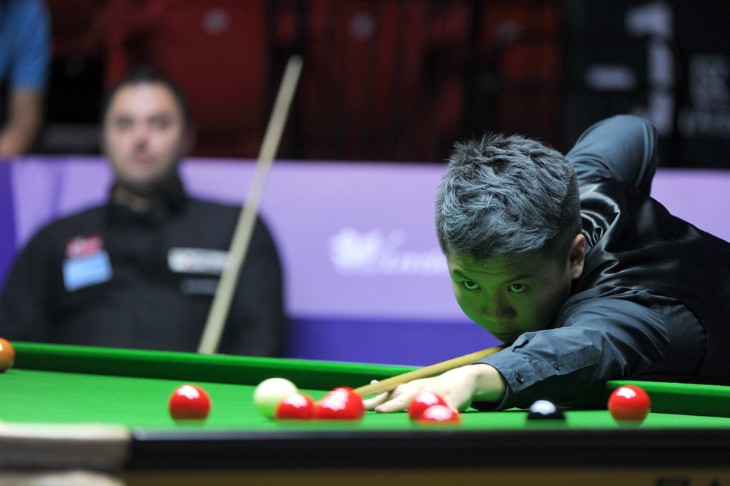
Jonathan Ashby
Calculated Approach to Powerful Shots

Jonathan Ashby
Professional Players' Cue Preferences

Jonathan Ashby
Exploring Snooker Tactical Approaches

Jonathan Ashby
Strategic Use of Angles in Potting

Andrew Blakely
Betting Intelligence: Player Form Assessment

Andrew Blakely
Decoding Player Form: Informed Betting Strategies

Andrew Blakely
Betting Strategies in Different Tournament Formats
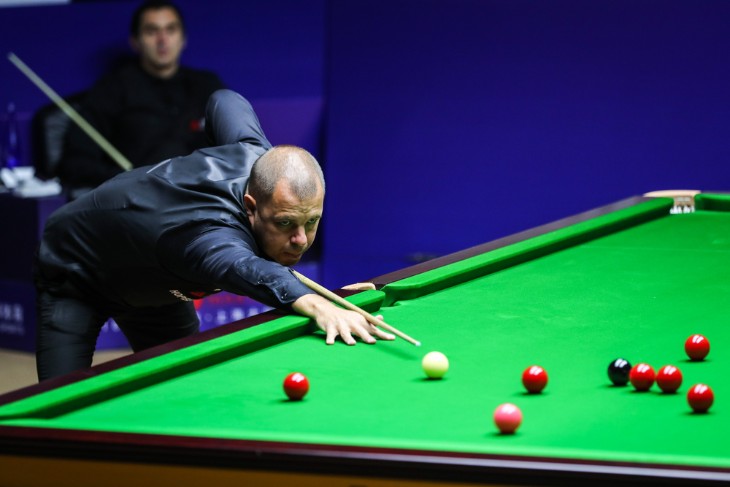
Jonathan Ashby
Adjusting Your Snooker Stance for Different Shots

Jonathan Ashby
Analyzing Opponent's Approach to Cueing Drills

Jonathan Ashby
Efficient Cue Ball Positioning in Cluttered Areas

Jonathan Ashby
Testing and Evaluating Snooker Cues
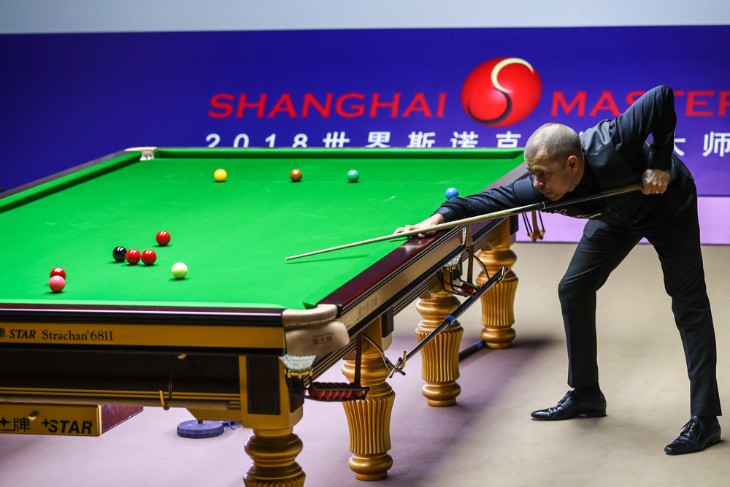
Jonathan Ashby
DIY Tips for Creating a Home Snooker Room
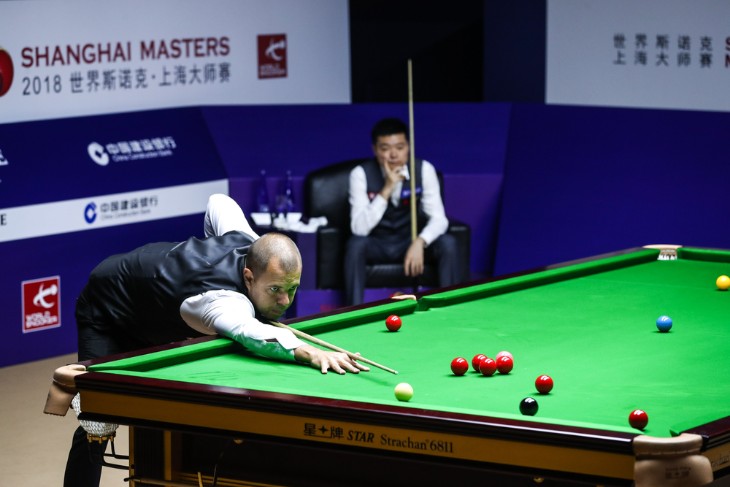
Jonathan Ashby
Understanding Snooker Game Plans
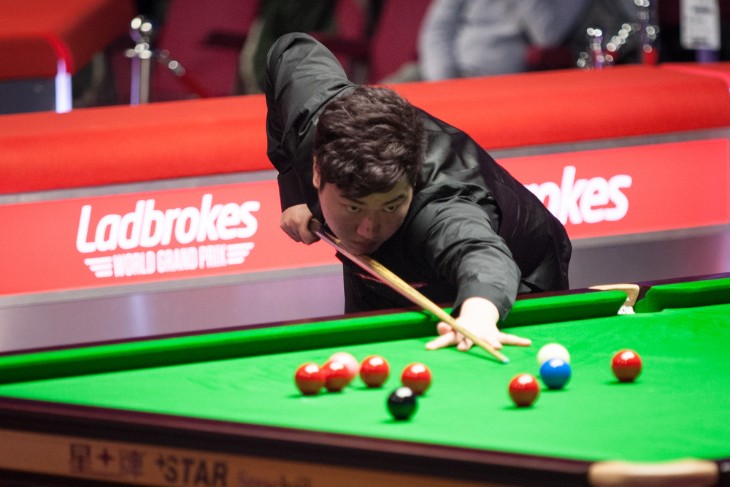
Jonathan Ashby
Advanced Sidespin Techniques

Jonathan Ashby
Race to Points: Player to Reach X Points First

Andrew Blakely
Spotting Talent: The Exciting World of Next 50+ Break Player Betting in Snooker

Andrew Blakely
Margin Matters: Frame Winning Margin Bets

Andrew Blakely
The Snooker Escape: Betting on Snookers Needed

Andrew Blakely
Last Ball Standing: Colour of Final Ball in Frame Bet

Andrew Blakely
Breaking Records: Highest Break in Frame Betting

Andrew Blakely
Spotlight on Skill: Next Player to Pot Betting

Andrew Blakely
Colorful Predictions: Next Color Potted Betting

Andrew Blakely
In-Play Tactics: Betting on Snooker Frame Scores

Andrew Blakely
First Strike: Player to Pot First Red Betting

Andrew Blakely
The High-Stakes Break of 100+ in Frame Bet

Andrew Blakely
Predicting Pot Sequences in Snooker Betting

Andrew Blakely
Future Frame Forecast: Score After Next Frame Bet
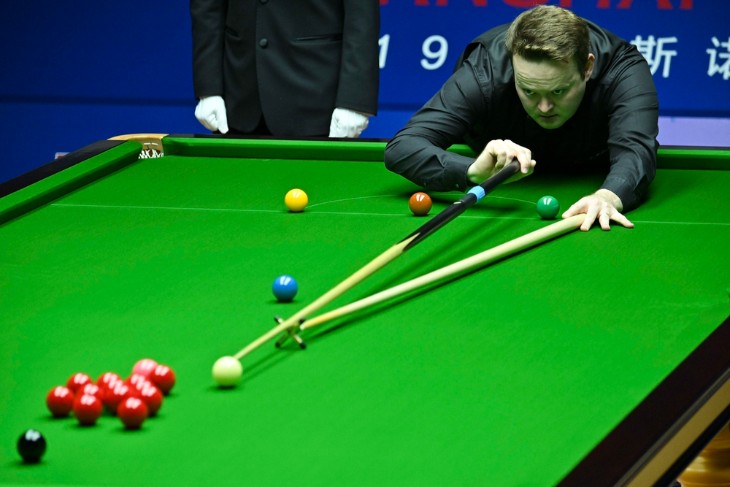
Jonathan Ashby
Predicting the Next Ball Potted in Snooker

Andrew Blakely
Red Alert: Betting on Reds Potted in a Frame

Andrew Blakely
Foreseeing the Next Foul: Snooker Foul Betting
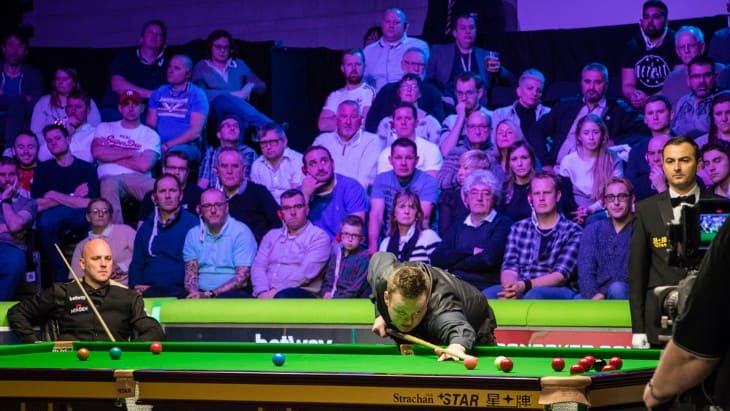
Andrew Blakely
Safety Success: The Calculated Snooker Bet

Andrew Blakely
Who Wins the Break? Current Break Winner Bets

Andrew Blakely
Quick Wins: The Race to 3 Frames Bet

Andrew Blakely
Time Tension: Total Frame Duration Betting

Andrew Blakely
Adjusting Expectations: The Intricacies of Total Frames (Adjusted) Betting

Andrew Blakely
Anticipating the Foul: Foul and Miss Penalty Betting

Andrew Blakely
The Safety Play Outcome: Snooker's Strategic Bet

Andrew Blakely
Live Frame Handicap Betting: A Snooker Specialty

Andrew Blakely
Aiming for the Top: Highest Break Betting

Andrew Blakely
Adapting Bets: Match Winner with Updated Odds in the World of Snooker

Andrew Blakely
Strategies for Frame Handicap Bets in Snooker
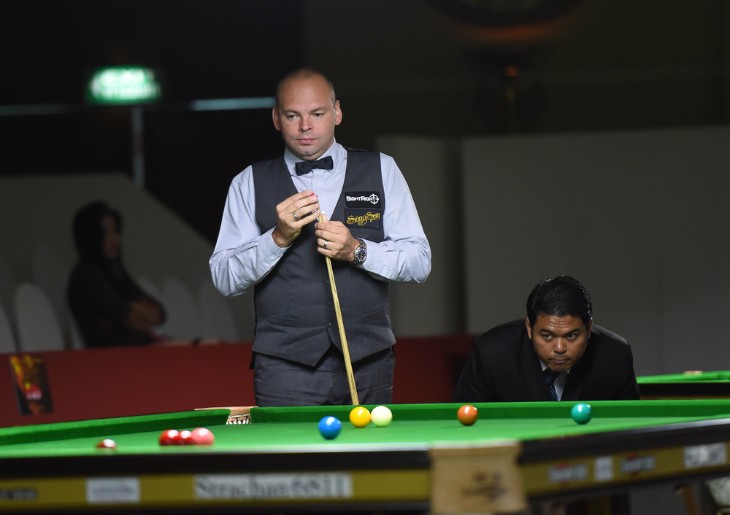
Andrew Blakely
Dynamic Decisions: Next Frame Winner Betting
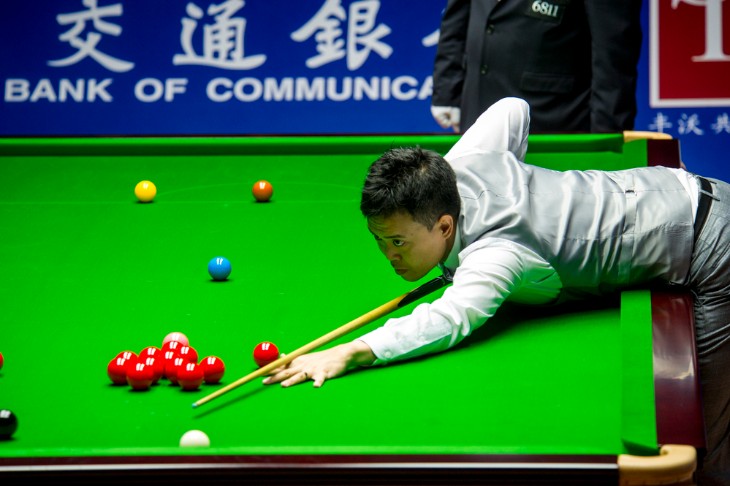
Andrew Blakely
Overcoming Biases in Snooker Betting

Jonathan Ashby
From Amateur to Professional: The Snooker Journey

Andrew Blakely
The Long Game: Outright Winner Betting in Snooker
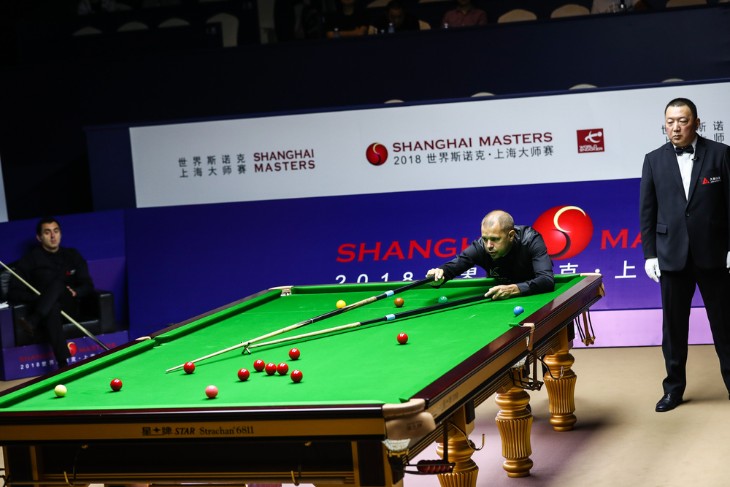
Andrew Blakely
Predicting Precision: Frame Score Betting in Snooker

Jonathan Ashby
Celebrating Snooker's Unsung Heroes: Behind the Camera
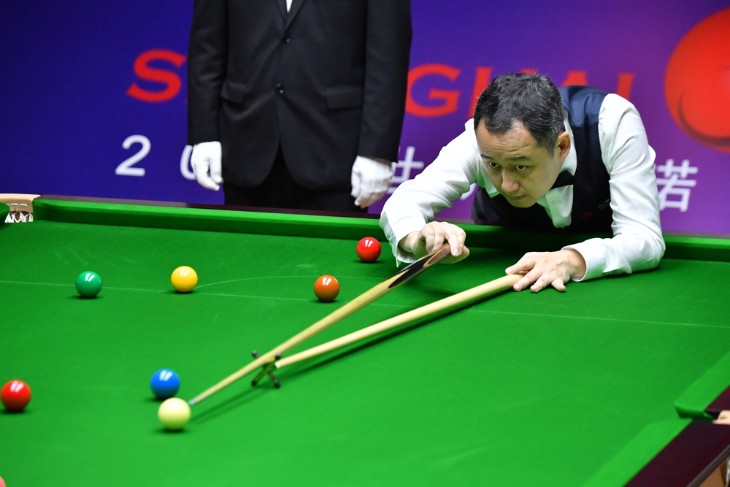
Andrew Blakely
Calculating Success: Player Total Points Betting

Jonathan Ashby
Exploring UK's Most Iconic Snooker Venues

Andrew Blakely
Century Breaks: A Snooker Betting Challenge

Andrew Blakely
Colorful Choices: First Color Potted Betting Insights

Jonathan Ashby
The Resurgence of Snooker Popularity in the 21st Century

Andrew Blakely
Who Leads First? Betting on the First Frame Winner
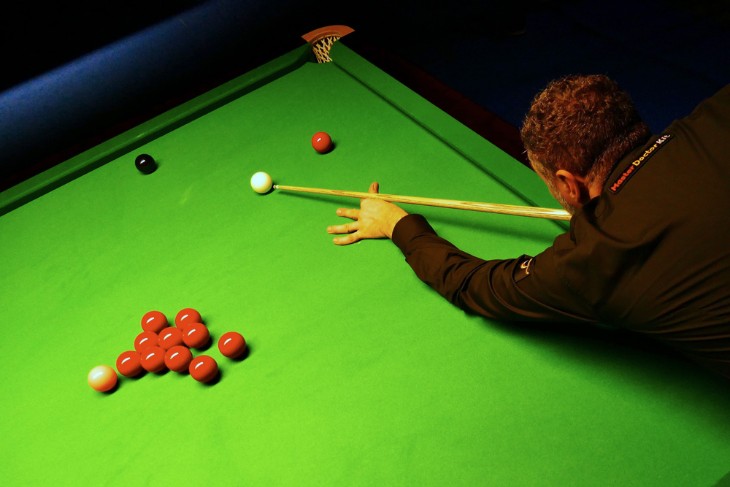
Andrew Blakely
Historical Underdogs: Biggest Upsets in Snooker Betting

Andrew Blakely
The Thrill of 147 Break Betting in Snooker

Jonathan Ashby
Snooker: A Tool for Social Bonding and Community Building

Andrew Blakely
Snooker Betting and the Importance of Frame Betting

Jonathan Ashby
Snooker Legends: Where Are They Now?

Andrew Blakely
Using Player Rivalries to Inform Your Snooker Bets

Jonathan Ashby
The Most Inspirational Comeback Stories in Snooker

Andrew Blakely
Counting Frames: Total Frames Betting Guide

Andrew Blakely
Navigating Handicap Betting in Snooker

Andrew Blakely
Decoding the Snooker Correct Score Bet

Jonathan Ashby
The Art of Frame Winner Wagering

Andrew Blakely
Mastering Match Winner Bets in Snooker

Jonathan Ashby
Spotlight on Snooker's Most Controversial Moments
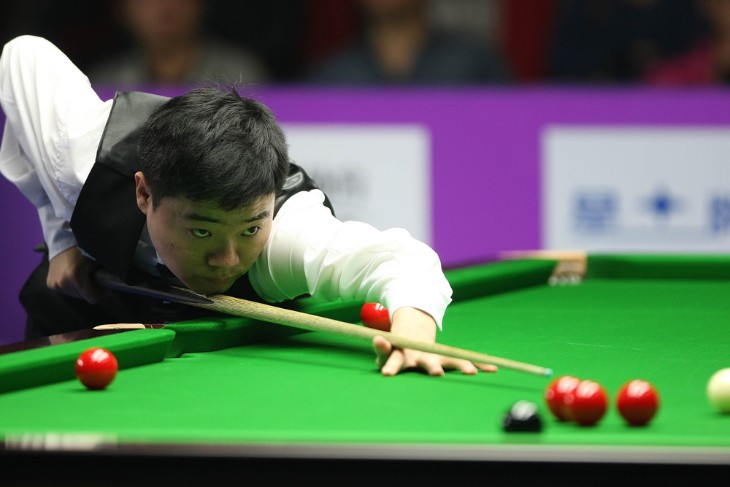
Andrew Blakely
Popular Snooker Betting Markets Explained

Jonathan Ashby
The Role of Social Media in Promoting Snooker
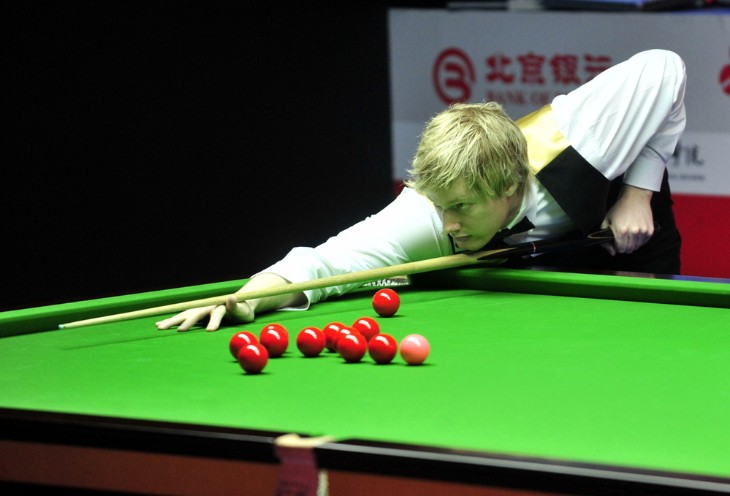
Jonathan Ashby
Snooker Tourism: Travelling the UK’s Snooker Circuit

Andrew Blakely
The Psychology Behind Snooker Betting

Jonathan Ashby
Snooker in Pop Culture: Movies, Music, and More

Jonathan Ashby
Analysing the Best Safety Shots in Snooker

Jonathan Ashby
Snooker Trick Shots: Understanding the Physics Behind Them

Jonathan Ashby
The Most Prolific Break Builders in Snooker
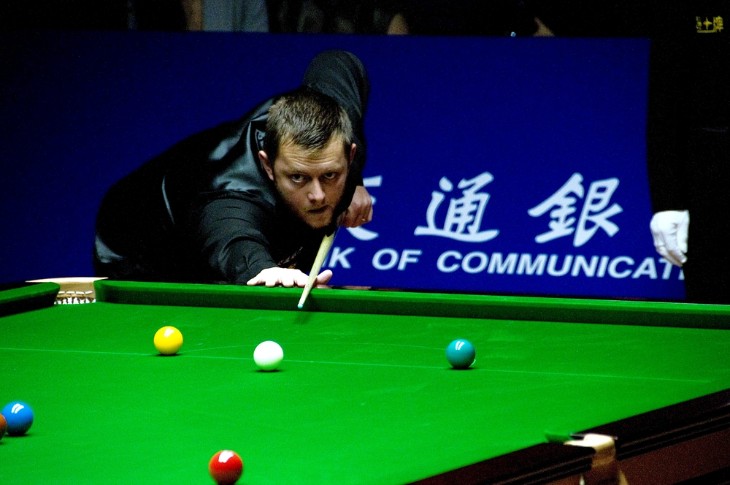
Jonathan Ashby
The Physics and Geometry of Snooker: A Deep Dive
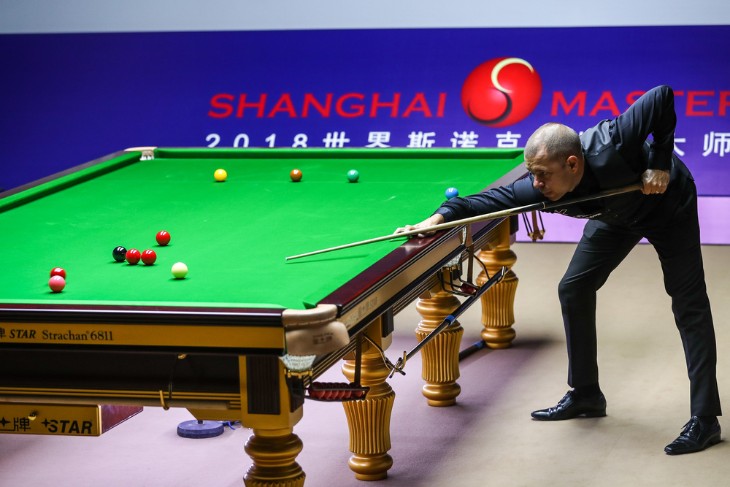
Jonathan Ashby
Strategies and Tactics Used by Top Snooker Players

Jonathan Ashby
Unforgettable Moments in World Snooker Championships

Jonathan Ashby
Snooker in the Olympics: A Debate

Jonathan Ashby
The Shift from Traditional to Online Snooker Viewership

Jonathan Ashby
In-depth: The Physics of Spin and English in Snooker

Jonathan Ashby
Nutrition and Fitness: The Unsung Heroes of Snooker Success
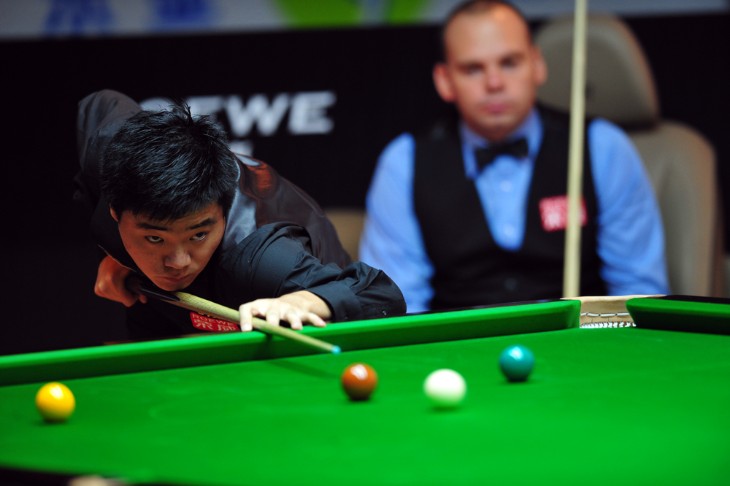
Andrew Blakely
Best Resources for Keeping Updated in Snooker Betting

Jonathan Ashby
The Role of Sponsors in the Snooker World
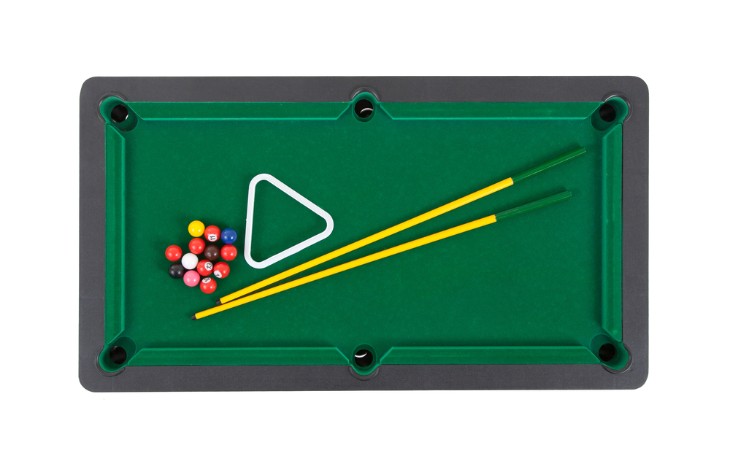
Jonathan Ashby
How Many Pockets Does a Snooker Table Have?
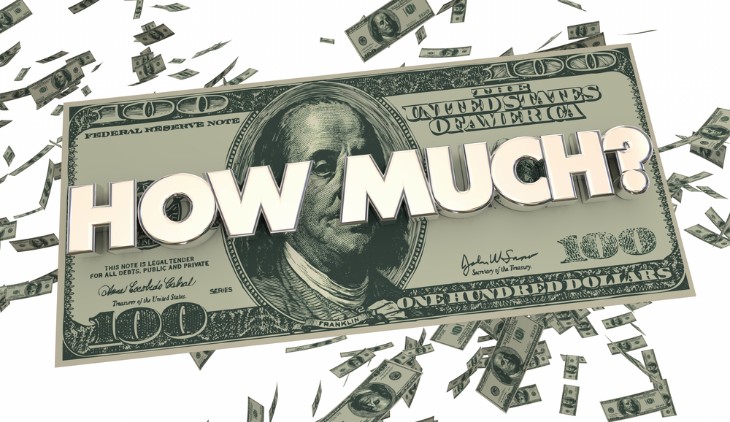
Jonathan Ashby
How Much to Recloth a Snooker Table?

Jonathan Ashby
How Different Cloth Materials Affect Snooker Play
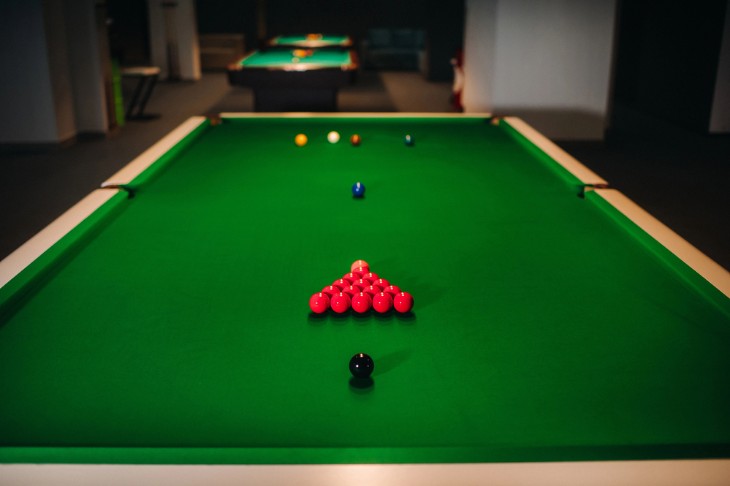
Jonathan Ashby
A Look at Innovative Snooker Accessories and Gadgets

Jonathan Ashby
Famous Snooker Rivalries Throughout History

Jonathan Ashby
How to Clean Snooker Balls

Andrew Blakely
The Role of Technology in Modern Snooker Betting
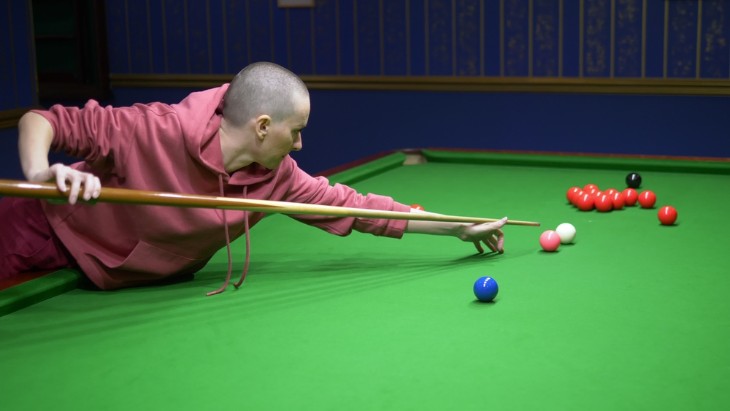
Jonathan Ashby
Snooker's Influence on Modern Furniture Design

Jonathan Ashby
Snooker for the Differently-Abled: Inspirational Stories
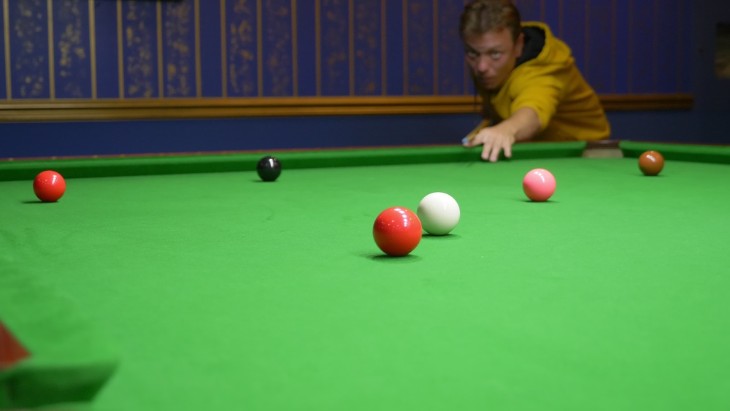
Jonathan Ashby
A Guide to the Different Types of Snooker Games

Jonathan Ashby
Introduction to Snooker Etiquette: Do's and Don'ts

Jonathan Ashby
Famous Controversies and Scandals in Snooker

Jonathan Ashby
How the Climate and Weather Affects Snooker Play

Jonathan Ashby
What is a Plant in Snooker?
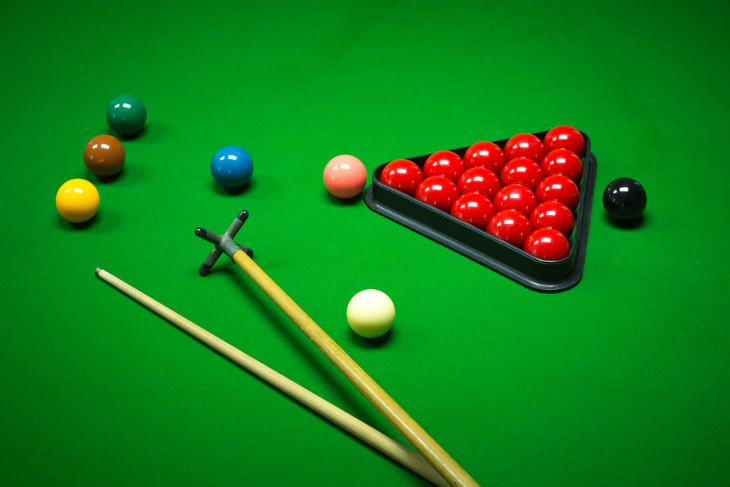
Jonathan Ashby
How Many Balls on a Snooker Table?

Andrew Blakely
The Impact of Player Form on Snooker Betting

Andrew Blakely
Bankroll Management for Snooker Betting

Jonathan Ashby
A Look into the Craftsmanship of Snooker Tables

Jonathan Ashby
The Economics of Hosting a Snooker Tournament

Jonathan Ashby
Overcoming Slumps: Stories of Snooker Resilience

Jonathan Ashby
Snooker’s Influence on Fashion Trends Over the Decades

Jonathan Ashby
Left-Handed Snooker Players: Masters of the Green Baize in 2024
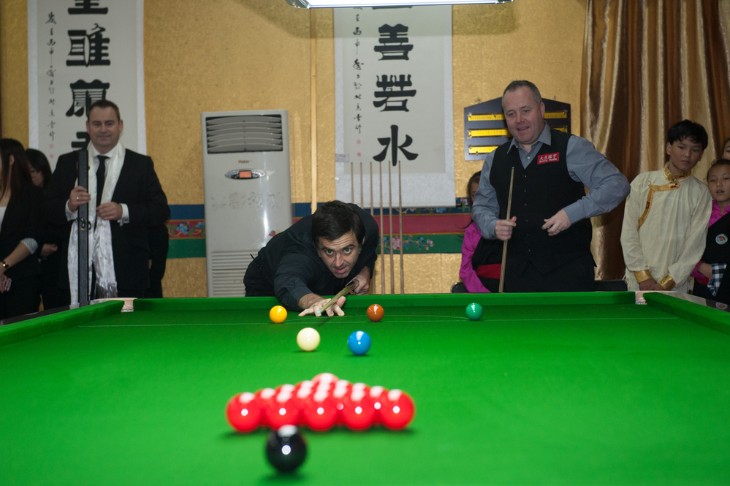
Jonathan Ashby
How to Play Snooker?
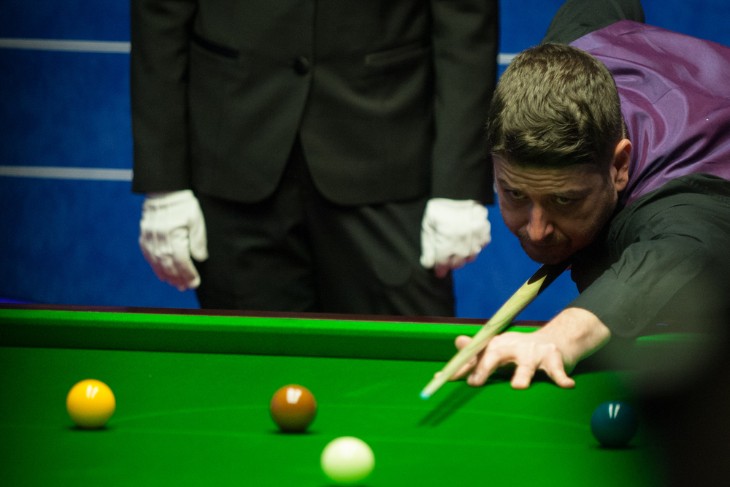
Andrew Blakely
The Role of Tournament Formats in Snooker Betting
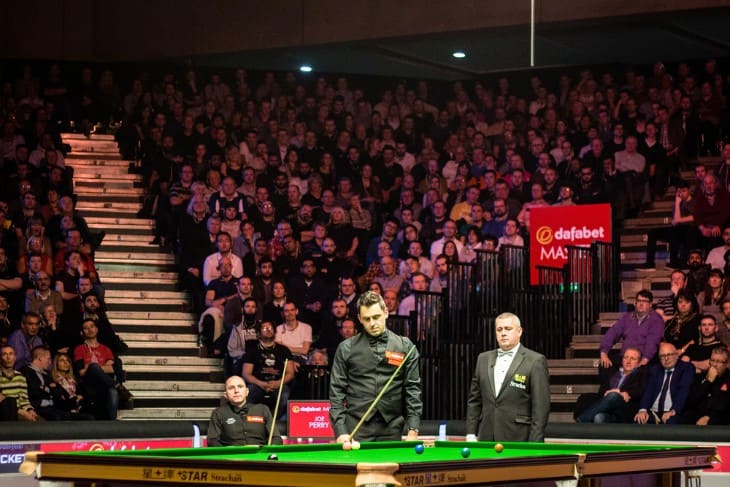
Jonathan Ashby
The Role of Fans and Crowds in High-Pressure Snooker Matches
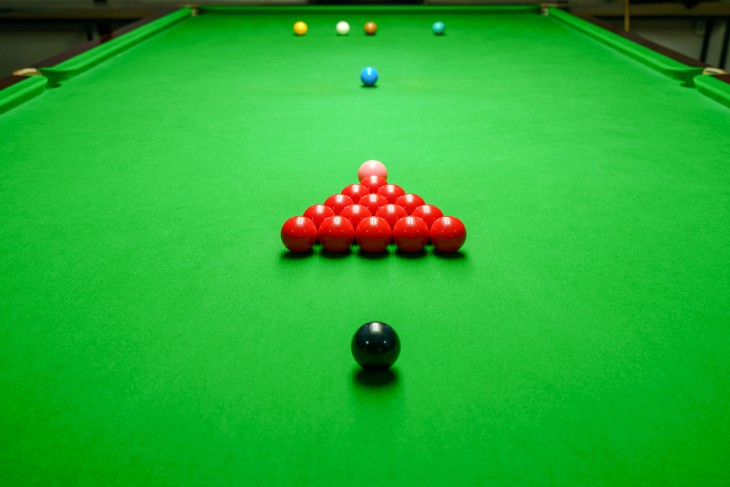
Jonathan Ashby
What is a Snooker?

Jonathan Ashby
Examining Snooker's Cultural Impact in Different Countries

Jonathan Ashby
Snooker Coaching: Importance, Methods, and Best Practices
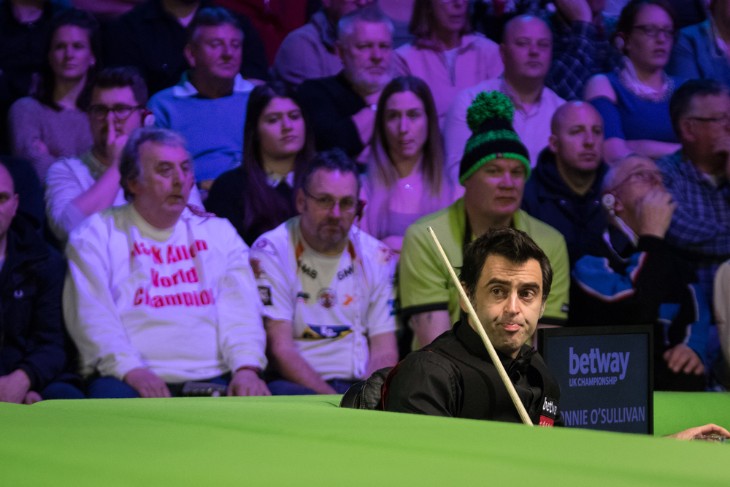
Jonathan Ashby
Famous Actors and Celebrities Who Love Snooker

Jonathan Ashby
The Golden Era of Snooker: A Retrospective

Jonathan Ashby
Cue Crafting: An Art and Science

Andrew Blakely
An Analysis of the Most Successful Snooker Betting Strategies

Jonathan Ashby
Snooker Coaching for Kids: Getting Started

Jonathan Ashby
How Do You Get a Free Ball in Snooker?

Jonathan Ashby
Where is the Snooker Grand Prix Held?

Jonathan Ashby
What is a Snooker Rest Called?
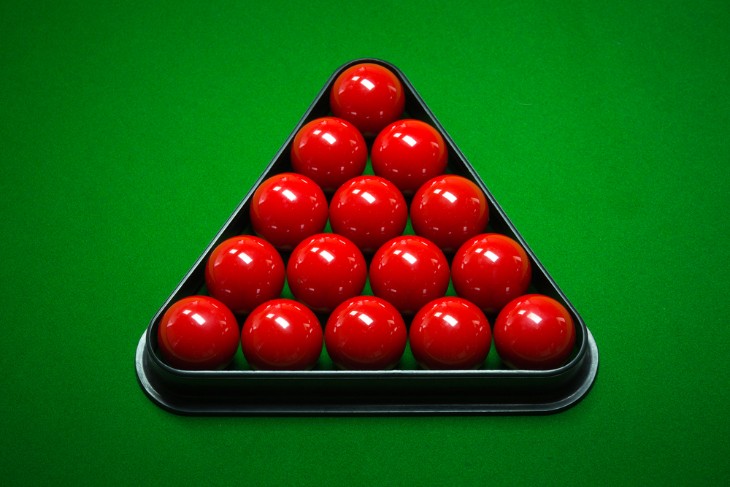
Jonathan Ashby
How Big are Snooker Balls?

Jonathan Ashby
How to Clean a Snooker Cue?

Jonathan Ashby
What is a Kick in Snooker?

Jonathan Ashby
Why do Snooker Players Wear Waistcoats?

Jonathan Ashby
What Cue Tips do Professional Snooker Players Use?
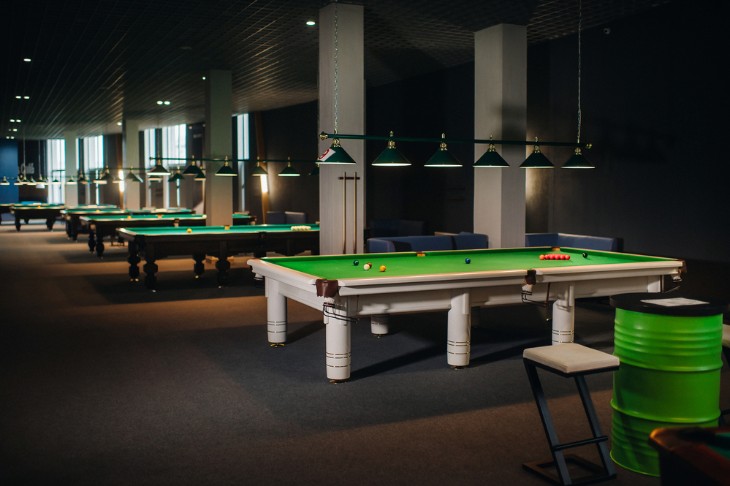
Jonathan Ashby
What Room Size for a Snooker Table?
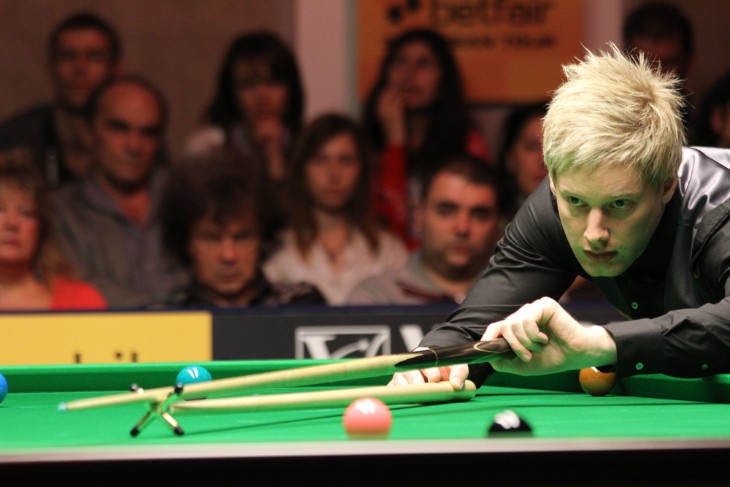
Jonathan Ashby
Why do Snooker Players Tap their Finger?

Jonathan Ashby
How Much is Mark Allen Worth in 2025?

Jonathan Ashby
Why do Snooker Players Wear Suits?

Jonathan Ashby
A Guide to Snooker Championships: Past, Present, and Future

Jonathan Ashby
A Guide to the Colorful Lingo and Terminology in Snooker

Jonathan Ashby
The Relationship Between Snooker and Mental Agility

Jonathan Ashby
How Climate Change Might Impact Indoor Sports like Snooker
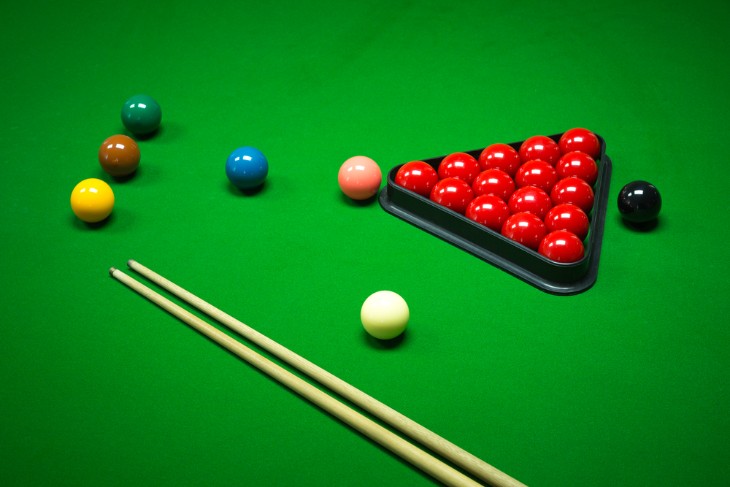
Jonathan Ashby
How to Set Up Snooker Balls?
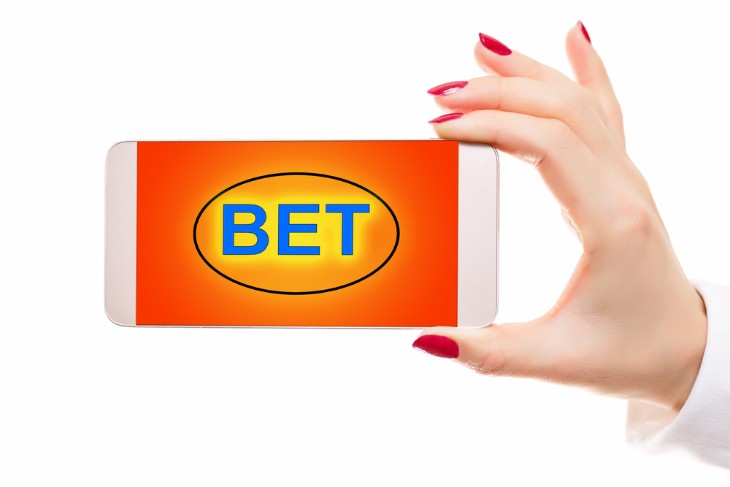
Andrew Blakely
Futures Betting in Snooker: Predicting Tournament Winners

Jonathan Ashby
Snooker's Influence on Youth: Inspiring the Next Generation
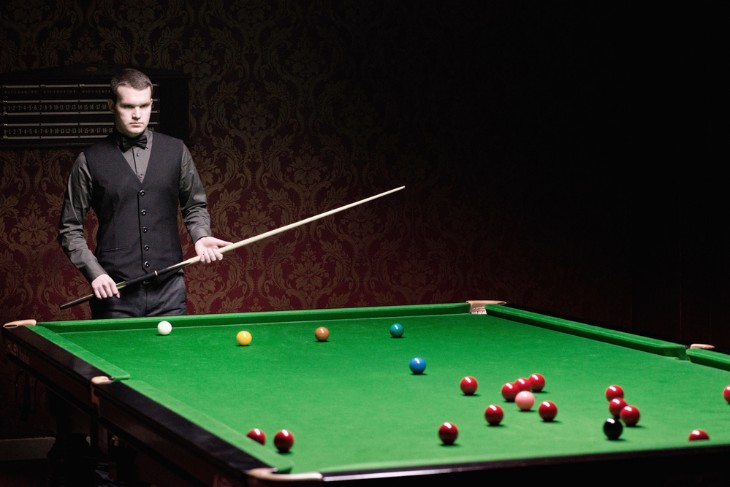
Andrew Blakely
How To Spot Value In Snooker Betting?

Jonathan Ashby
Diversity in Snooker: Celebrating Players from Different Backgrounds

Jonathan Ashby
Introduction to Snooker Analytics and Stats

Jonathan Ashby
How Much Do Snooker Commentators Get Paid?
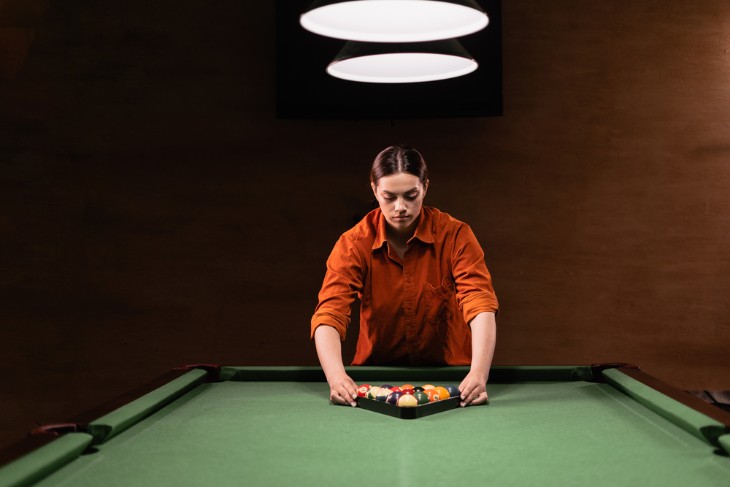
Jonathan Ashby
Famous Women in Snooker: Their Achievements and Challenges

Jonathan Ashby
What is a Century in Snooker?
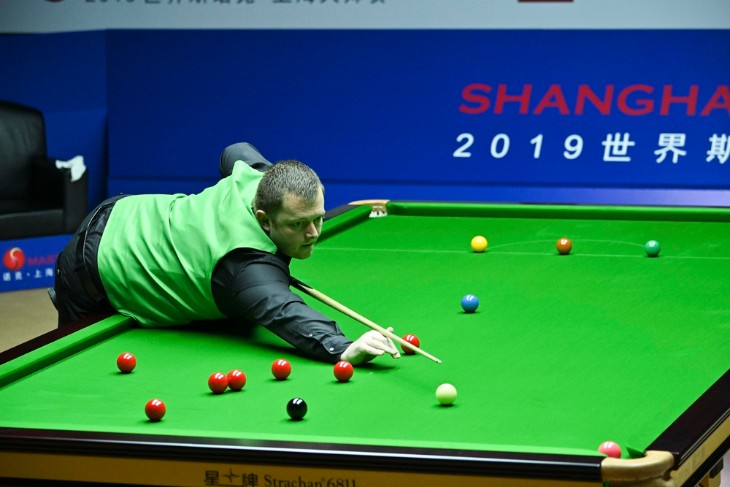
Jonathan Ashby
In-depth: The Most Famous Snooker Matches in History

Jonathan Ashby
How to Become a Snooker Referee

Jonathan Ashby
How VR and AR Could Shape the Future of Snooker Training

Jonathan Ashby
Fitness Regimes of Top Snooker Players

Jonathan Ashby
What is a Free Ball in Snooker?

Jonathan Ashby
How to Straighten a Snooker Cue
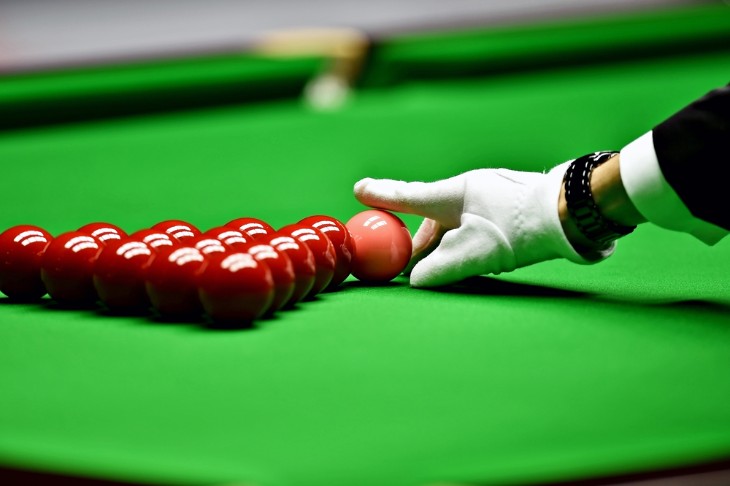
Andrew Blakely
The Role of Referees in Snooker: Implications for Betting
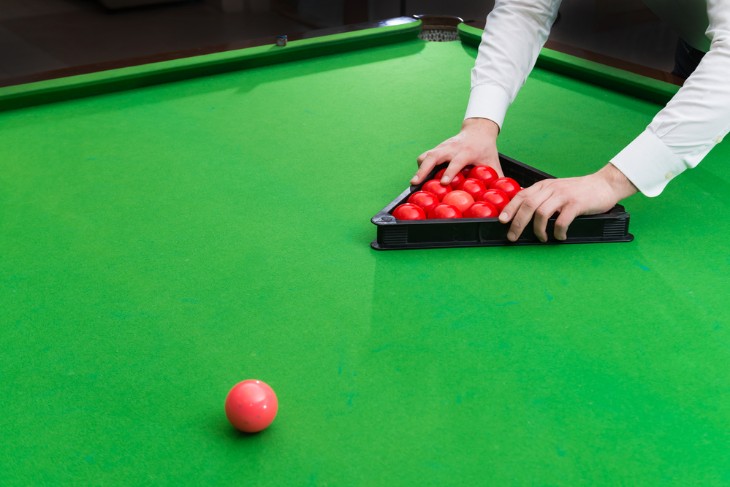
Jonathan Ashby
Off-season in Snooker: An Inside Look

Jonathan Ashby
How to Shape a Snooker Cue Tip with Sandpaper

Jonathan Ashby
Emerging Snooker Powerhouses: Countries on the Rise

Jonathan Ashby
What Are Snooker Cues Made Of?

Jonathan Ashby
The Anatomy of a Snooker Club: Behind the Scenes

Jonathan Ashby
How to Hold a Snooker Cue?

Andrew Blakely
Analysing Player Interviews for Betting Insights

Jonathan Ashby
The Relationship Between Snooker and Mathematics
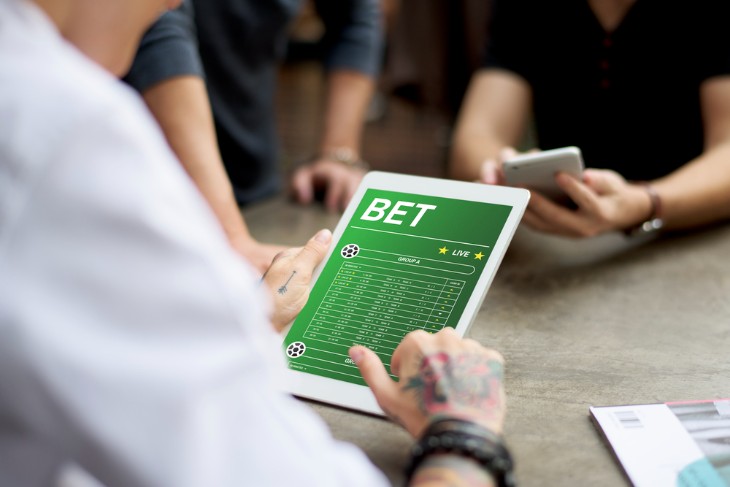
Andrew Blakely
Key Tournaments to Watch for Snooker Betting Enthusiasts

Jonathan Ashby
Exploring the Aesthetics: Art and Design in Snooker Halls

Jonathan Ashby
The Most Challenging Snooker Shots Explained
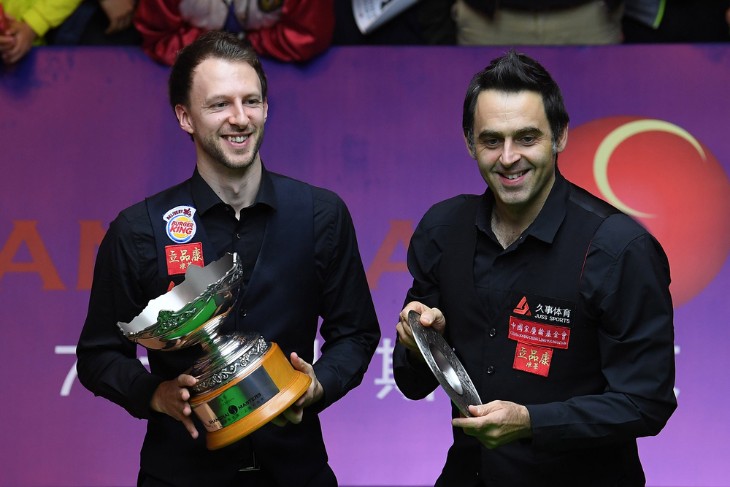
Jonathan Ashby
Who Has Made a 155 Break In Snooker?

Andrew Blakely
A Beginner's Guide to Betting on Snooker
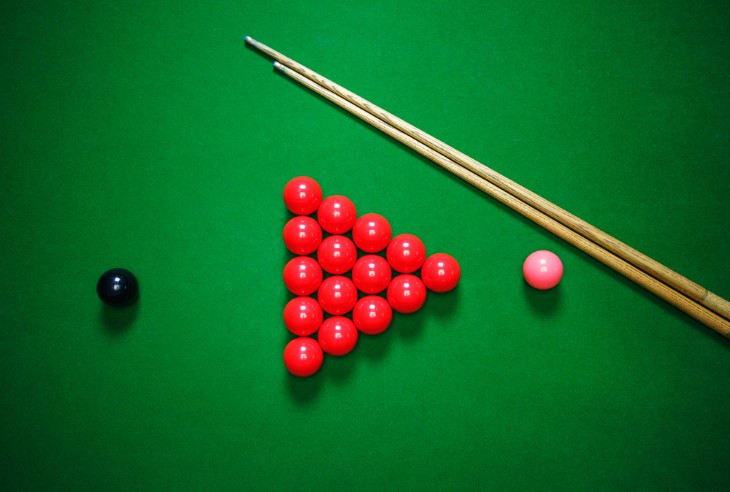
Jonathan Ashby
A Guide to Snooker Collectibles and Memorabilia

Jonathan Ashby
What is the Difference Between Snooker and Pool?
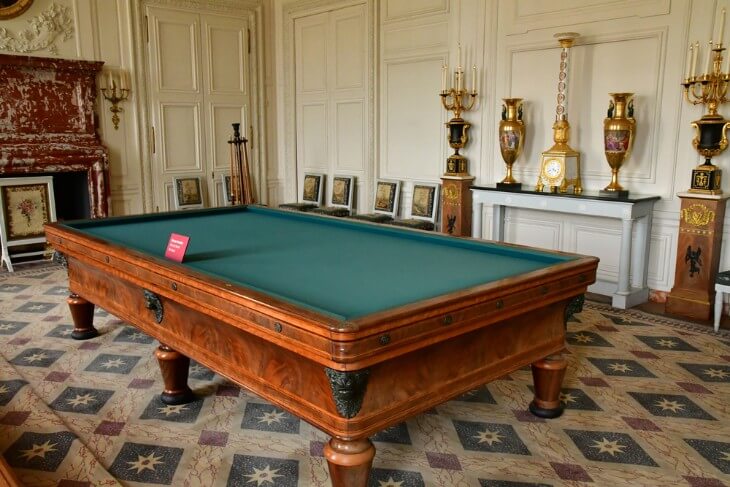
Jonathan Ashby
How Big Is A Snooker Table?

Jonathan Ashby
How to Break in Snooker?
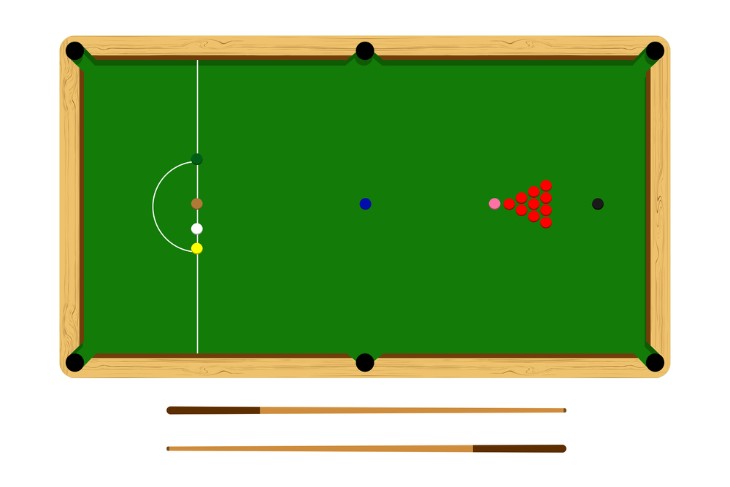
Jonathan Ashby
Why Are Snooker Tables Green?

Jonathan Ashby
Amateur Snooker in the UK: A Deep Dive

Jonathan Ashby
Exploring the Oldest Snooker Halls in the UK

Jonathan Ashby
Prominent Personalities in Snooker Commentary

Jonathan Ashby
The Role of Nutrition in Enhancing Snooker Performance

Jonathan Ashby
The Best Snooker Autobiographies and Books

Jonathan Ashby
How To Become Better At Snooker?

Jonathan Ashby
The Influence of Venue and Crowd on Snooker Outcomes

Jonathan Ashby
The Influence of Snooker on Other Cue Sports

Jonathan Ashby
How High is a Snooker Table?
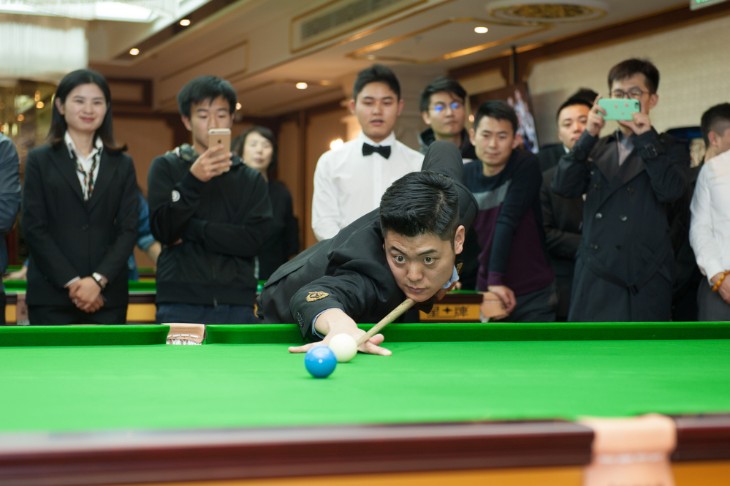
Jonathan Ashby
Snooker Training Routines of Professional Players

Jonathan Ashby
The Influence of Technology on Snooker Equipment

Andrew Blakely
In-Play Betting in Snooker: Tips and Strategies

Jonathan Ashby
Tips and Tricks for Maintaining Snooker Equipment at Home

Jonathan Ashby
Who Invented Snooker?
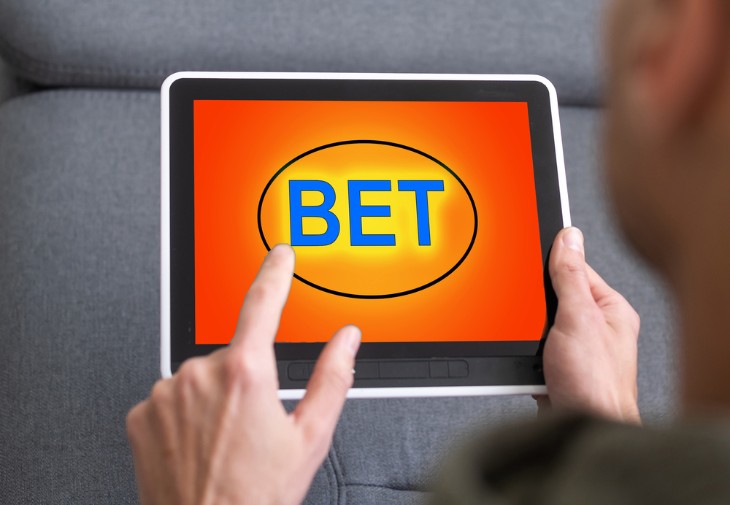
Andrew Blakely
The Relationship Between Player Rankings and Betting Odds

Jonathan Ashby
Dress Code Evolution in Snooker

Jonathan Ashby
The Evolution of Snooker: A Historical Timeline
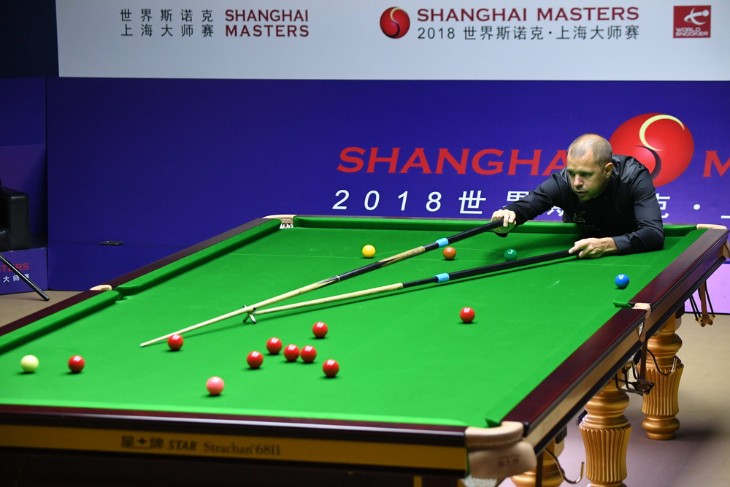
Jonathan Ashby
How Many Frames in Snooker?

Jonathan Ashby
Role of Sports Science in Snooker Training

Jonathan Ashby
Snooker in the Digital Age: Online Platforms, Streaming, and Video Games

Jonathan Ashby
How Video Analysis is Changing the Game of Snooker

Andrew Blakely
Acca Bets in Snooker: Opportunities and Risks
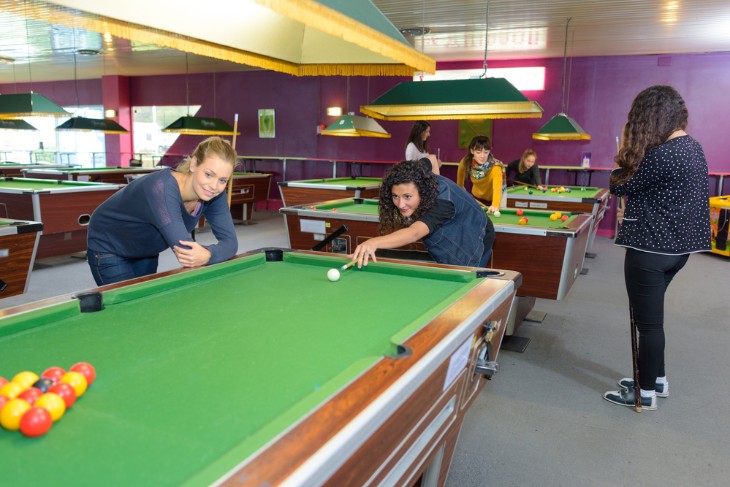
Jonathan Ashby
Snooker Hall Architecture and Design Insights

Jonathan Ashby
Exploring Unique Snooker Training Aids

Jonathan Ashby
The Importance of Hand-Eye Coordination in Snooker

Jonathan Ashby
How to Make a Snooker Cue

Jonathan Ashby
How Much is a Professional Snooker Table?
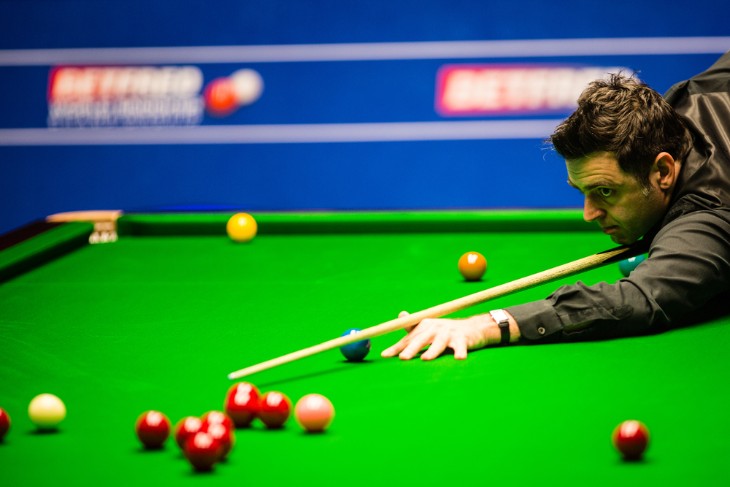
Jonathan Ashby
Where is the Crucible Snooker?

Andrew Blakely
Mobile Snooker Betting: Advantages and Best Practices

Jonathan Ashby
How Much do Snooker Players Earn?

Andrew Blakely
Understanding Snooker Betting Odds
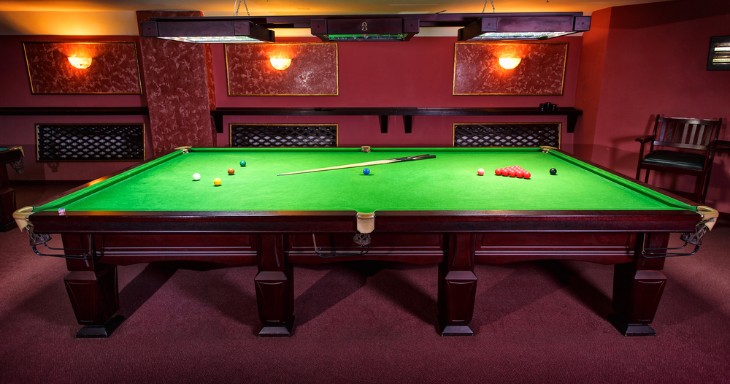
Jonathan Ashby
How Much Does a Snooker Table Weigh?

Andrew Blakely
The Growth of Virtual Snooker Betting: Potential and Pitfalls

Jonathan Ashby
A Study on the Impact of Sound and Acoustics in Snooker Halls

Jonathan Ashby
Snooker's Relationship with Traditional Media

Jonathan Ashby
The Role of Technology in Modern Snooker Broadcasting

Jonathan Ashby
Training Techniques for Improving Your Snooker Spin Shots

Jonathan Ashby
Designing the Perfect Snooker Man Cave or Room

Andrew Blakely
The Evolution of Snooker Betting Over the Years
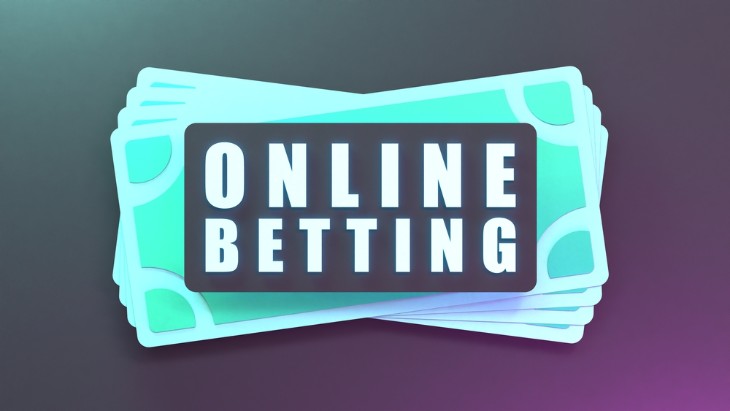
Andrew Blakely
Safety First: Ensuring Secure Snooker Betting Online
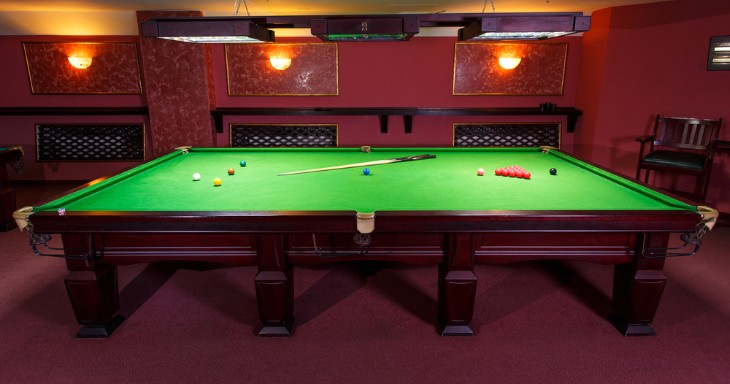
Jonathan Ashby
How Long is a Snooker Cue?

Jonathan Ashby
Snooker and Mental Health: Importance of a Balanced Life
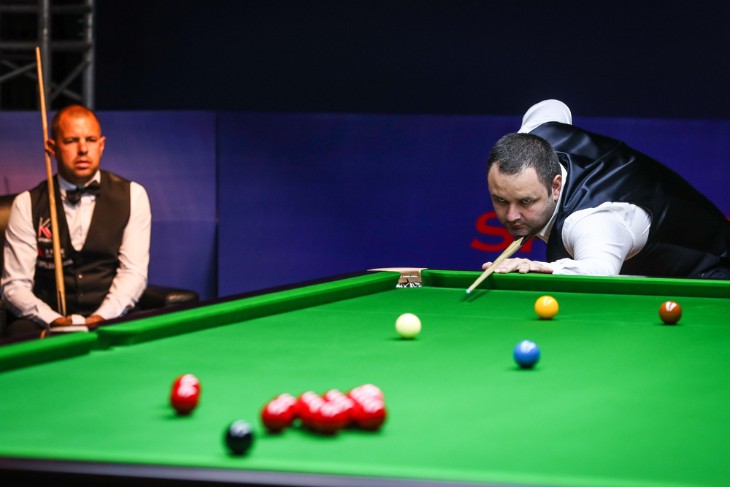
Jonathan Ashby
Snooker vs. Billiards: Understanding the Key Differences

Jonathan Ashby
Snooker's Environmental Footprint: Sustainable Practices in the Game
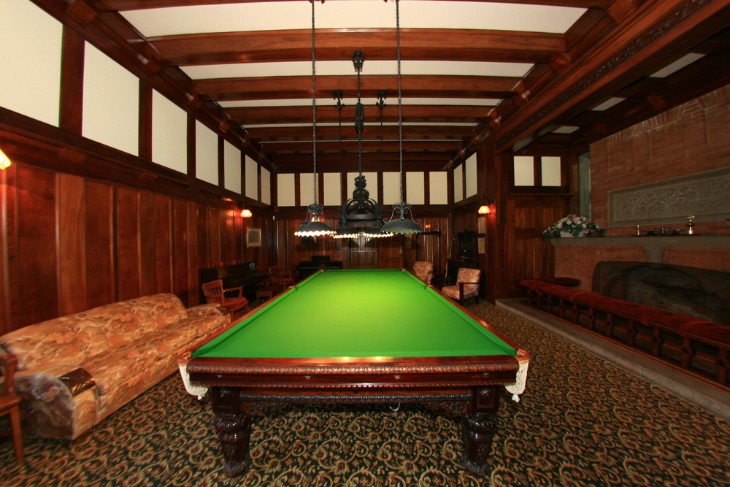
Jonathan Ashby
Comparing British Snooker Styles with the Rest of the World

Jonathan Ashby
What are the Rules of Snooker?

Jonathan Ashby
The Cultural Significance of Snooker in the UK

Jonathan Ashby
The Psychology of Winning: Mindset of Top Snooker Players

Jonathan Ashby
Snooker's Relationship with Charity: Giving Back

Jonathan Ashby
Best Platforms for Live Streaming Snooker Matches

Jonathan Ashby
The Importance of Mental Endurance in Long Snooker Matches
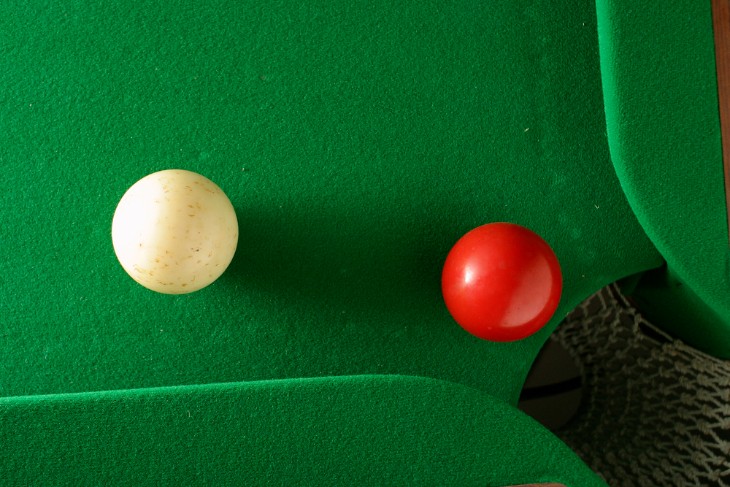
Jonathan Ashby
What are Snooker Balls Made of?
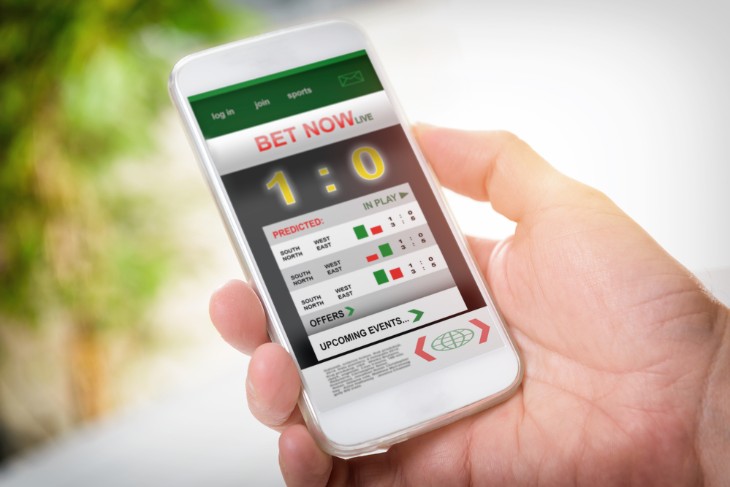
Andrew Blakely
Mistakes to Avoid When Betting on Snooker
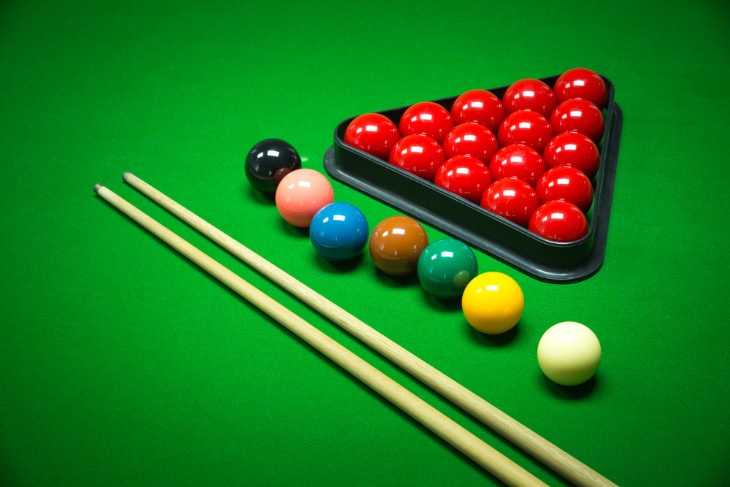
Jonathan Ashby
How Snooker Can Help Improve Concentration and Cognitive Skills

Jonathan Ashby
The Role of Music in Snooker: From Walk-On Tunes to Concentration Boosters

Jonathan Ashby
Iconic Snooker Comebacks
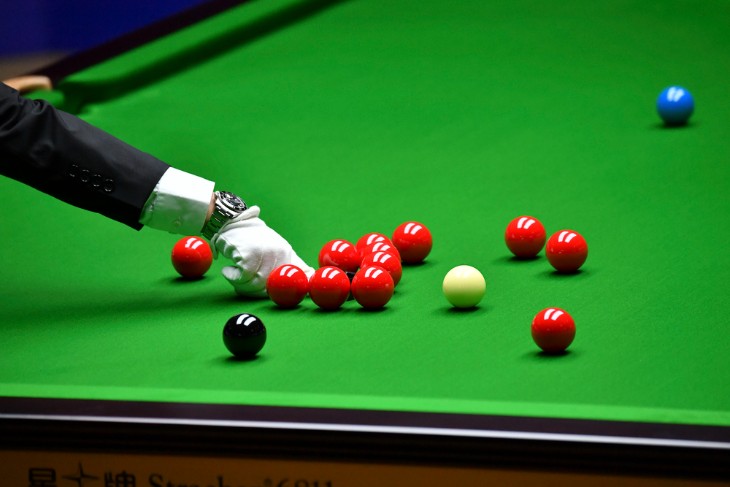
Jonathan Ashby
Unwritten Rules: The Ethics and Morals of Snooker Play





































































































































































































































